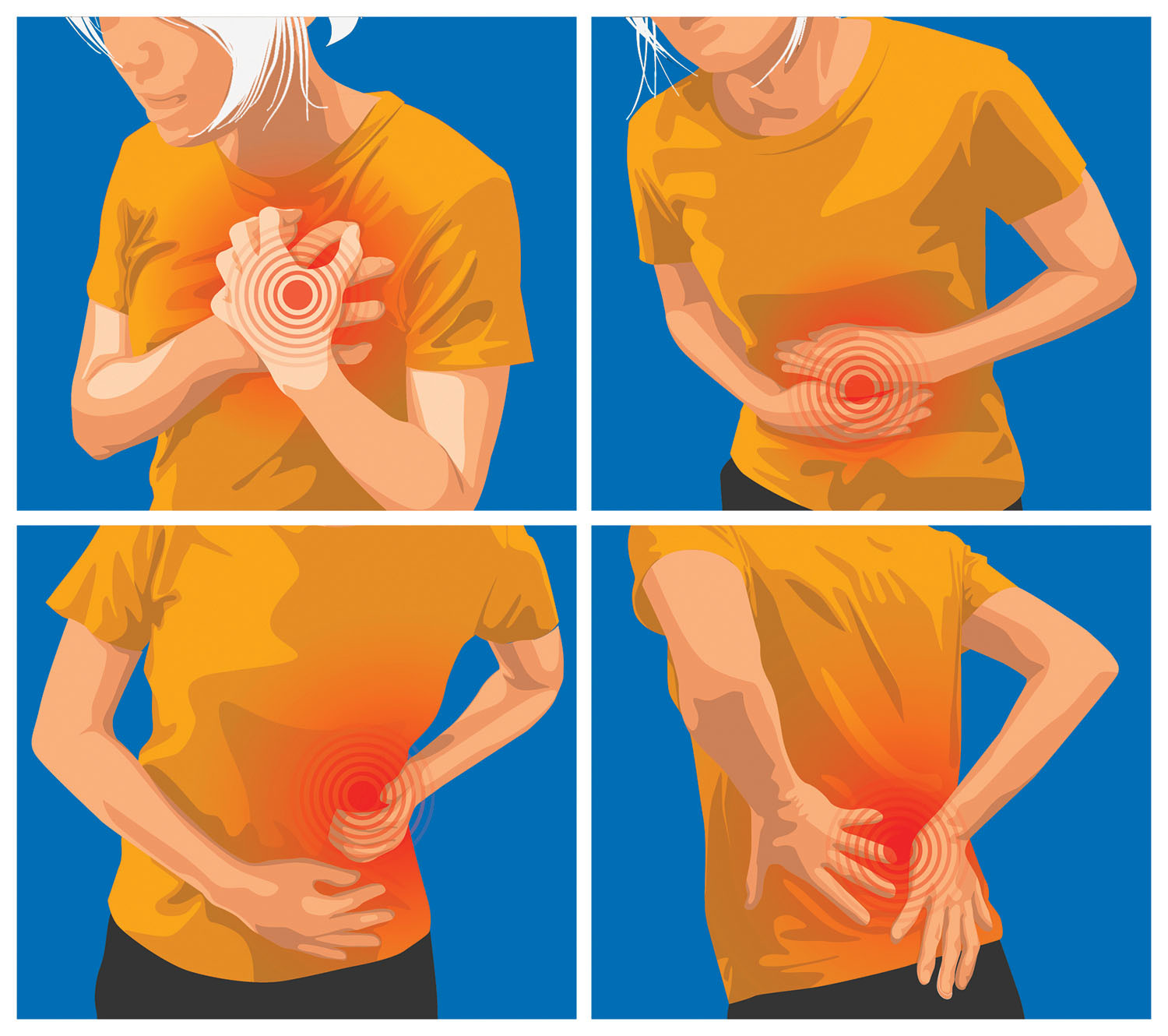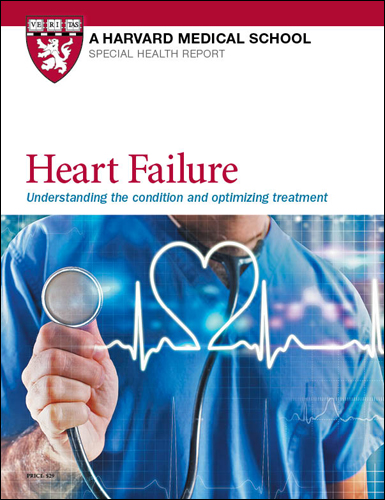Women's Health
Women's heart symptoms not so different after all
New medical advice reflects evolving knowledge about cardiovascular disease in women.
- Reviewed by Toni Golen, MD, Editor in Chief, Harvard Women's Health Watch; Editorial Advisory Board Member, Harvard Health Publishing; Contributor

For years, women have been warned to stay alert to "atypical" symptoms of heart attack that are different from what men experience.
But new guidelines co-authored by a Harvard cardiologist flip that advice on its head. It turns out that chest pain — the trademark symptom of heart attack — isn't as different between women and men as doctors believed and is indeed the most common sign of heart attack in both sexes.
The caveat? Women having heart attacks are more likely to report additional symptoms, such as shortness of breath, nausea, or fatigue, among others.
"For many years, clinicians believed there was a real difference in how men and women experienced chest pain," says Dr. Deepak L. Bhatt, executive director of Interventional Cardiovascular Programs at Harvard-affiliated Brigham and Women's Hospital and a professor of medicine at Harvard Medical School. "It's been the conventional wisdom, but it turns out it's not true. It probably turned out to be a hurtful thing."
"For a long time, we said women's symptoms are atypical, which promoted the concept that men are typical," agrees Dr. Emily Lau, a cardiologist at Massachusetts General Hospital who specializes in women's cardiovascular health. "As a community, we're trying to change the language surrounding how we think about women's heart disease and health." (For details, see "Do these 3 things if you're having chest pain.")
Do these 3 things if you're having chest painMost patients who go to the emergency room with chest pain are women, especially those over 65. But women are less likely to get timely care, in part because they might mention other symptoms — such as nausea, fatigue, or shortness of breath — first, or dismiss them as something less serious and delay going to the ER, says Dr. Deepak L. Bhatt, executive director of Interventional Cardiovascular Programs at Harvard-affiliated Brigham and Women's Hospital. Dr. Bhatt recommends anyone experiencing chest pain to follow three key steps:
|
Heart failure revelations
The new guidance on evaluating patients with chest pain, co-authored by Dr. Bhatt and published Nov. 30, 2021, in Circulation, is part of a broader shift in the medical community's understanding of key differences in how women and men experience cardiovascular disease.
Another recent Harvard-led insight surrounds heart failure, which strikes one in five people over all. Women are more likely to have a specific type, called heart failure with preserved ejection fraction (HFpEF, also known as diastolic heart failure). This means the heart is stiff and unable to pump well.
Recent research by Dr. Jennifer En-Sian Ho, a cardiologist specializing in advanced heart failure and transplantation at Harvard-affiliated Beth Israel Deaconess Medical Center, suggests that, compared with obese men, women with obesity face higher odds of developing HFpEF. Additionally, women with HFpEF have a tougher time exercising because their hearts have a harder time keeping up with the body's needs, according to 2020 research by Dr. Ho, Dr. Lau, and colleagues.
Unfortunately, science hasn't yet caught up on effective treatments for this female-dominated heart failure type. Many more medications are available for the type most common in men, known as heart failure with reduced ejection fraction. "It's a major knowledge gap in the field, where we simply know less about how to effectively treat women with heart failure in general," says Dr. Ho.
Reproductive history and heart risk
Ironically, even as research continues to clarify sex-specific differences in heart disease, women's overall awareness of its seriousness is plummeting. A 2019 survey by the American Heart Association found that only 44% of women correctly identified heart disease as the top killer of women, compared with 65% in 2009.
"It's shocking that less than half of women know this fact," says Dr. Lau.
While scientists are still teasing out why our cardiovascular risks and symptoms may vary from men's, it's become clear in recent years that our reproductive history is integral to evaluating our heart health. Dr. Lau says cardiovascular risks may depend on factors such as
- diabetes or high blood pressure during pregnancy
- age and symptoms of menopause
- past infertility.
"Make sure your doctor is asking you questions about your reproductive history," Dr. Lau says. "No one's thinking about how something that happened during pregnancy 20 years ago might affect heart risk, but it may be incredibly important."
Image: © Jong-eun Kim/Getty Images
About the Author

Maureen Salamon, Executive Editor, Harvard Women's Health Watch
About the Reviewer

Toni Golen, MD, Editor in Chief, Harvard Women's Health Watch; Editorial Advisory Board Member, Harvard Health Publishing; Contributor
Disclaimer:
As a service to our readers, Harvard Health Publishing provides access to our library of archived content. Please note the date of last review or update on all articles.
No content on this site, regardless of date, should ever be used as a substitute for direct medical advice from your doctor or other qualified clinician.
















